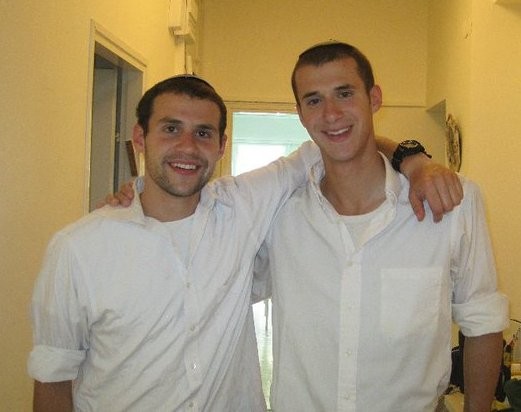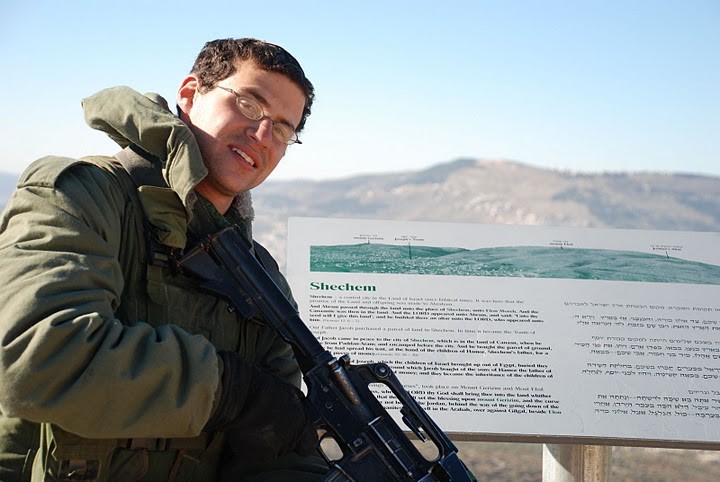Soldiers in Exile Club
Adam Kugelman, not alone
As Israel celebrates it’s 63rd year, The Jewish Star sat down with Adam Kugelman, originally from Woodmere and a senior at Yeshiva University, who served as a Lone Soldier in the Israel Defense Forces.
By David F. Nesenoff
David F. Nesenoff: When did you serve as a Lone Soldier in the IDF and what is that exactly?
Adam Kugelman: I served in the Israeli Army in 2007 and 2008. A Lone Soldier is a soldier who doesn’t have family or parents in Israel. He serves in the army and the IDF provides you with an apartment and some money to buy food to try to make it easier for you as a Lone Soldier.
DFN: What motivated you to go and join the IDF from your American background?
AK: I am originally from Woodmere. I went to High School at the Rambam Mesivta and then went to Yeshiva Har Etzion in Gush for two years. At the Rambam Mesivta there is a very Zionist curricullum, and in 11th grade I took a course in Zionism history of Israel. I guess I became very Zionistic from that. I definitely wasn’t thinking about going into the army until I got to yeshiva and became friends with all the Israelis there, and they all knew they were going into the army as Hesder student in two years. Once I became friends with them it seemed like a natural event.
DFN: What did you parents think of your decision?
AK: It took a lot of convincing. I started to speak with them about it at the beginning of my shana bet (second year) and at first the answer was “no” then the answer became “maybe after college” and it went back and forth for a long time. Probably around Pesach time I convinced them to allow me to go in.
DFN: Did they come and visit?
AK: My father and my grandfather came in for my …….
DFN: How were you received by Israelis and other Israeli soldiers as being a Lone Soldier?
AK: A lot of the Israeli soldiers thought we were crazy. Why would we come to Israel? Why would we want to serve in the army? Go back to America, life is good there. They certainly respected the fact that we came. They understood why we did.
DFN: What was the most difficult part of being in the Israeli army?
AK: The long time I spent there without being able to go home and without any vacation.
DFN: Other then the normal dangers, of being in the army and of being in Israel and being a Jew in the world, were you there for any dangerous times?
AK: I was there after the second Lebanon war and before Cast Lead. I was there in between two dangerous times.
DFN: You have a brother who is there right now in the IDF?
AK: Yes, my younger brother Jeremy.
DFN: Were you an influence and how did your parents handle a second child going into the IDF?
AK: I think he would definitely considered it anyway, but I already convinced my parents to let me go and that made it easier for him.
DFN: You are now studying at Yeshiva University and I understand that there are some other students at YU who also served in the IDF?
AK: Yes. We started a club last year called Soldiers in Exile. We all knew that there were a few students, so we formed a club. My friend Michael Horowitz started it and this year I became president of the club and we get together and we bring in speakers about the IDF and about the security situation in Israel.
DFN: Now you are a senior at YU. What are you studying and what do you hope to do with your degree?
AK: I am an economics major and a math minor, and I plan on working in America next year and hopefully at the end of next year move to Israel and get an MBA.
DFN: With all your collective experiences and education, you must have some opinion and understanding about Israel and the future with regard to what is ultimately going to bring about peace?
AK: I think it would be great if we could have peace, but practically speaking, I don’t see it happening any time soon. I think that certain things that the Israelis and the Palestinians want are mutually exclusive. The Israelis insist on keeping all of Jerusalem and the Palestinians insist on having half of Jerusalem. I don’t think Israel has a responsibility to give up half the city just because Arabs want it. And practically speaking, you can’t just split up a city like that. Jerusalem was never the capital of any Palestinian or Arab country. I think the Palestinians have to be a little more realistic about what they want from Israel. The right of return is not going to happen. We are not about to flood the State of Israel with thousands of Palestinians.
DFN: Do you recommend others to join the Israeli army?
AK: I definitely wouldn’t say that everyone should join, but if someone is interested I would encourage him to seriously consider it.
DFN: This week we are celebrating Israel Independence Day. Is there some feeling you have that maybe you didn’t have before or maybe that you feel this time of year?
AK: More for Yom Hazikaron than anything else. I feel more of a connection to Israel’s memorial day having served in the army and having some experience with what the IDF has to deal with. I take the sacrifice that they make more seriously. Thank G-d, I don’t know anyone who was killed in combat but having served and having friends who served makes the whole thing more real.
DFN: How is your brother doing, serving in the IDF right now?
AK: He’s good. He’s stationed right outside of Gaza. And I think and hope he’s enjoying himself.
DFN: When an American hears that someone is stationed outside of Gaza and enjoying himself… what does that mean?
AK: There is a lot of comradery in the army, I was definitely very tight with my friends. You’re not sleeping and you’re not eating and you’re under a lot of stress. So you just want to enjoy it.
DFN: Did your Hebrew speaking improve being in the army?
AK: Definitely, going into the army my Hebrew was terrible.
DFN: When you make Aliyah, you’ll be serving again?
AK: I want to join the reserve unit.
DFN: What do you think makes the Israeli army so smart, powerful and successful?
AK: I think it’s a need basis. The top Israeli commanders know that if we don’t have a powerful, smart, defensible army, then the country will disappear. We need it.
DFN: What about U.S. policies in regard to Israel?
AK: I think it was a huge mistake on the part of the Obama administration to put a lot of pressure on Israel. Pressuring Netanyahu on the land freeze, Abbas could take the position that he doesn’t have to negotiate unless the building was frozen. Before that there was no such thing as not needing to negotiate until a building freeze. Now that Obama made that the official American policy, Abbas can just sit back and not negotiate whatsoever. The peace process is stalled because of that.
DFN: How will you be celebrating Israel Independence Day?
AK: I’ll be at YU. There’s a ceremony on the night between Yom Hazikaron and Yom Ha'aztmaut, and during the day there’s a barbeque and a concert.
DFN: On behalf of The Jewish Star, we extend our gratitude to you and all the members of the Exiled Soldiers Club for your service in the IDF. It has been an honor talking with you and we wish your brother safety along with all the other soldiers of Israel.

 48.0°,
Overcast
48.0°,
Overcast 







